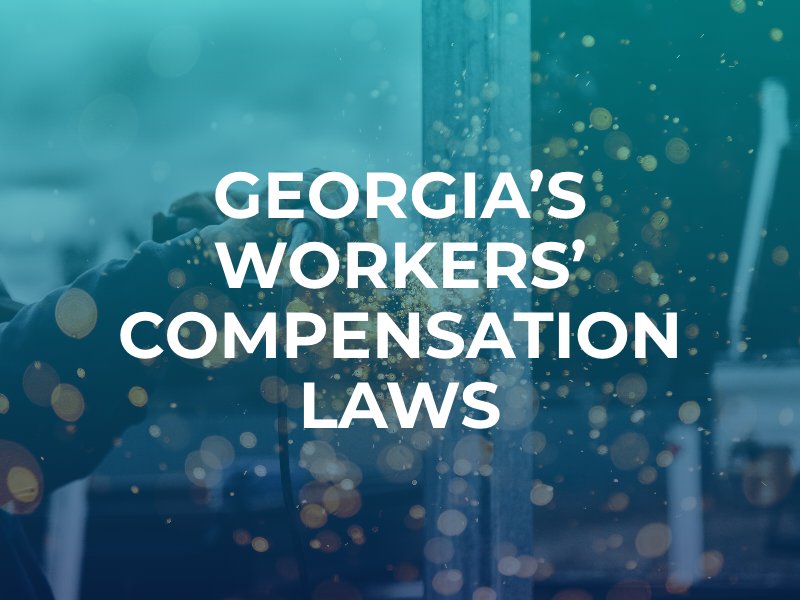Georgia’s Workers’ Compensation Laws at a Glance
When a worker sustains an injury on the job, they should be able to recover various types of compensation for their losses. Through the workers’ compensation insurance system, injury victims can recover compensation for their medical bills and even a significant portion of their lost wages if they are unable to resume duties right away. Here, we want to take a brief look at Georgia workers’ compensation laws.

What is Workers’ Compensation in Georgia?
In the state of Georgia, workers’ compensation insurance is an insurance system put in place to help provide those who sustain on-the-job injuries with medical benefits, compensation for rehabilitation, and a portion of their lost wages if they are unable to return to work right away. These benefits may also help provide assistance to help individuals return to work, such as vocational training. Finally, workers’ compensation insurance is designed to provide benefits to dependents if a person sustains a fatal injury on the job.
Deadlines for Reporting Work Injuries
There are a few deadlines that individuals need to be aware of related to workplace injuries. First, a workplace injury must be reported to a supervisor or the employer within 30 days of the injury occurring or 30 days from a diagnosis.
The overall workers’ compensation claim must be filed within one year from the date that the incident occurs or from when the diagnosis is handed down.
Will You Receive Compensation if You Caused the Injury?
Yes, you will almost always receive compensation for a workplace injury, even if you partially or completely caused the injury yourself. This is considered a no-fault insurance system, which means individuals should be able to recover compensation regardless of who caused the injury. Part of this, though, means that individuals are not allowed to file civil personal injury lawsuits against the alleged at-fault party, even if that is a coworker or the employer.
Can You Ever File a Third-Party Lawsuit?
Yes, it may be possible to file a civil personal injury lawsuit against a third party aside from the employer or coworkers. It is not uncommon for other parties to be involved in causing a workplace injury, such as contractors or subcontractors, drivers of other vehicles, product companies or manufacturers, or even government entities.
If a third party causes a person to sustain an on-the-job injury, the injury victim will typically be allowed to file a civil personal injury lawsuit against them. This opens up the ability to recover additional types of compensation above and beyond what is normally available through workers’ comp, including pain and suffering damages and additional lost wages.
Is Your Employer Required to Carry Workers’ Compensation Insurance?
Georgia law requires any businesses that have three or more employees, including part-time workers, to carry workers’ compensation insurance. If you are unsure about whether or not your employer carries the required workers’ compensation, you can go to www.sbwc.georgia.gov and check out the Popular Topics section. You will find the area to “verify workers’ compensation insurance coverage.”
Do You Need a Lawyer?
You typically do not need an attorney to successfully recover workers’ compensation benefits after sustaining an on-the-job injury. However, if an employer or insurance carrier pushes back and delays or denies the claim unnecessarily, you may need to speak to a skilled Atlanta workplace injury lawyer who can help guide you through this process.